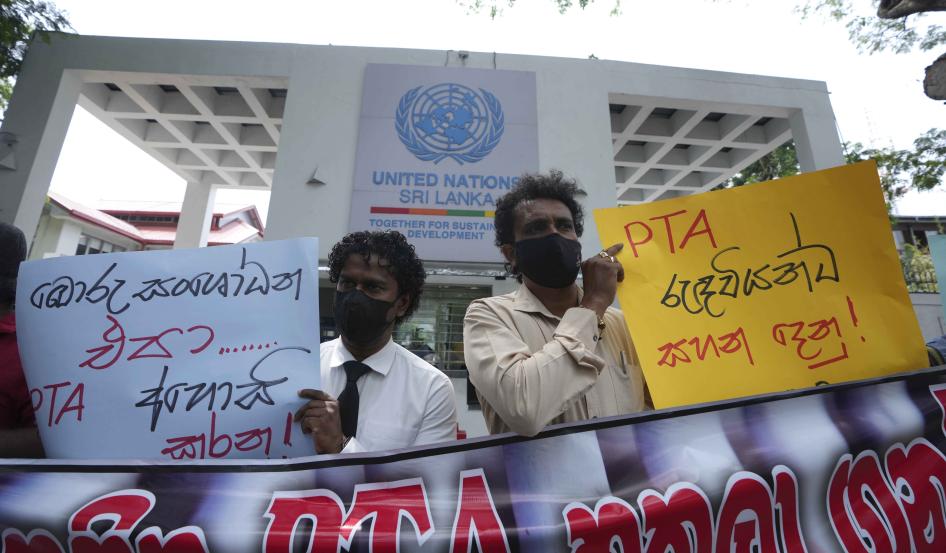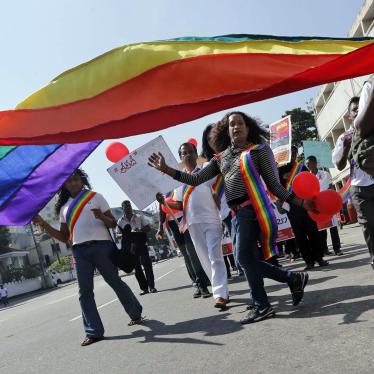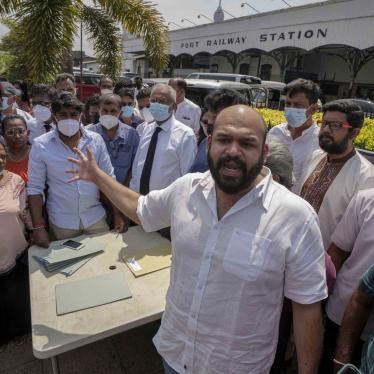The Sri Lankan government has attempted to dodge growing international pressure to end abuses under its notorious Prevention of Terrorism Act (PTA) by rushing cosmetic amendments through parliament this week. United Nations human rights experts and the European Union have also recognized that the revisions do not address the law’s most abusive provisions.
In its hurry to pass the amendments, the government skipped committee hearings that would have allowed input from rights groups, missing a key opportunity to bring the law into closer compliance with Sri Lanka’s international human rights obligations.
For over four decades, Sri Lankan authorities have used the PTA to facilitate prolonged arbitrary detention and torture, and to target members of minority communities and civil society. Even as amended, the law still allows the government to detain anyone for up to a year without charge, without producing any evidence, and without the possibility of bail. The amendments do not provide meaningful safeguards against torture, instead encouraging it by allowing convictions based on confessions to a police officer.
President Gotabaya Rajapaksa’s administration is facing large demonstrations against economic mismanagement, which has caused severe shortages of essential goods and rampant inflation. Seeking international financial support, but under pressure for ongoing abuses, the government is attempting to claim “progress” on rights issues.
Yet the abuses continue. On the same day the PTA amendment was passed, a prominent human rights activist was summoned to the police Terrorism Investigation Division, another instance of the government using “terrorism” as a pretext to target lawful activism. Following threats of further protests, the summons was subsequently withdrawn.
Police last week also suppressed protests by the families of people who were forcibly disappeared in army custody during and after the civil war, which ended in 2009. On a recent visit to Sri Lanka, United States Undersecretary for Political Affairs Victoria Nuland stressed the need for “ending surveillance, ending detention [under the PTA] and ending harassment.”
Sri Lankans are in need of urgent international assistance as they confront food and fuel shortages, but the government needs to understand its friends and partners abroad are seeking genuine human rights reforms, and real steps to end abuses and bring justice.










